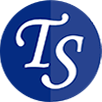In this article, we will explain which digital platforms for the commercial management of drugstores and pharmaceutical laboratories should be used and why. Starting by defining the differences between a drugstore and a pharmaceutical laboratory, the products they market, what a medical representative does, how a CRM can assist the medical representative and commercial management, why use a mobile application to handle the CRM, the importance of certifications and recertifications of medical representatives, why use an eLearning platform to certify them, and why use a B2B e-commerce platform.
Tabla de Contenido
- 1 What is a drugstore, what is a pharmaceutical laboratory, their differences, and similarities
- 2 What are the most common product lines in drugstores and pharmaceutical laboratories?
- 3 What does a medical representative do?
- 4 How can a CRM help a medical representative and commercial management?
- 5 Why use a mobile application to handle the CRM?
- 6 The importance of certifications and recertifications for medical representatives
- 7 Why use an eLearning platform for certification?
- 8 Why use a B2B e-commerce platform in the pharmaceutical industry?
- 9 Conclusion
- 10 Why use a mobile CRM app for the commercial management of medical representatives?
- 11 Why are Certifications and Recertifications necessary for medical representatives of Drugstores and Pharmaceutical Laboratories?
- 12 Why use an e-learning platform for the certification and recertification of medical representatives of Drugstores and Pharmaceutical Laboratories?
- 13 How can a mobile CRM app and e-learning platform work together?
- 14 ¡Request an Instant Consulting Session!
- 15 I want an Instant Consulting
- 16 Stand Out in Fashion: Effective Strategies for Creating an Online Clothing Accessories Store Website
- 17 How to Scale Customers on the Sales Pyramid - Complete Guide
- 18 Your Online Boutique: Keys to Creating a Website for a Boutique or Fashion Store
What is a drugstore, what is a pharmaceutical laboratory, their differences, and similarities
A drugstore and a pharmaceutical laboratory are two types of companies that operate in the pharmaceutical industry, but they have significant differences and similarities.
A drugstore is a company responsible for distributing and marketing medications and other health-related products, such as personal care products, medical devices, and dietary supplements. Drugstores do not manufacture products; they purchase medicines from pharmaceutical laboratories and distribute them to pharmacies, hospitals, and other sales points.
A pharmaceutical laboratory is a company dedicated to the research, development, manufacture, and distribution of pharmaceutical products, such as medications, vaccines, and therapeutic products. Pharmaceutical laboratories can develop and manufacture their own products or can produce products for other pharmaceutical companies under contract.
Regarding the differences:
- The primary function of a drugstore is the distribution and marketing of pharmaceutical products, while the main function of a pharmaceutical laboratory is the research, development, and manufacture of pharmaceutical products.
- Drugstores do not have the capability to produce medications, while pharmaceutical laboratories do.
- Drugstores are generally smaller companies than pharmaceutical laboratories, as their function focuses on the distribution and marketing of products, while pharmaceutical laboratories have a broader and more diversified research and manufacturing capability.
Regarding the similarities:
- Both types of companies are involved in the pharmaceutical industry and work to improve people’s health and well-being.
- Both drugstores and pharmaceutical laboratories must comply with regulations and policies governing the pharmaceutical industry, including quality, safety, and efficacy standards.
- Both companies collaborate to ensure that pharmaceutical products are safely and efficiently delivered to patients.
What are the most common product lines in drugstores and pharmaceutical laboratories?
Drugstores and pharmaceutical laboratories can offer a wide variety of health products, but here are some of the most common product lines:
Product lines in drugstores:
- Over-the-counter medications: Pain relievers, fever reducers, anti-inflammatory drugs, antihistamines, cough and cold products, among others.
- Personal care products: Personal hygiene, skin care, hair care, makeup and cosmetic products, baby and children’s products, among others.
- Medical devices: Thermometers, blood pressure monitors, health monitoring products, among others.
- Nutritional supplements: Vitamins, minerals, dietary supplements, among others.
Product lines in pharmaceutical laboratories:
- Prescription medications: Medications that require a medical prescription, including those for the treatment of chronic, infectious, cardiovascular diseases, among others.
- Vaccines: Products for the prevention of infectious diseases.
- Biological products: Therapeutic products derived from biological substances, such as proteins, antibodies, and cells.
- Research and development: Pharmaceutical laboratories may also invest in researching and developing new medications and therapeutic products for disease treatment.
It’s important to note that although there are some product lines common to most drugstores and pharmaceutical laboratories, the range of products offered can vary significantly from one company to another. They might specialize in certain types of products. Additionally, the product portfolio can vary depending on the country or region where the company is located, based on local regulations and policies.
What does a medical representative do?
A medical representative is a professional in the pharmaceutical industry responsible for visiting doctors, hospitals, and other healthcare professionals to inform them about the company’s products and services they represent.
Some of the activities a medical representative might carry out include:
- Present detailed information about the company’s products to healthcare professionals, including their benefits, dosage, side effects, and possible interactions with other medications.
- Provide samples, promotional materials, and any additional information that might be of interest to the healthcare professional.
- Keep track of doctors’ preferences and feedback regarding the products.
- Participate in conferences, seminars, and workshops related to the pharmaceutical industry.
- Coordinate with the company’s sales and marketing team to develop strategies for introducing new products or improving the positioning of existing products in the market.
In essence, a medical representative acts as a bridge between the pharmaceutical company and healthcare professionals, ensuring that the latter are well-informed about the company’s products, leading to effective patient treatment and care.
How can a CRM help a medical representative and commercial management?
CRM (Customer Relationship Management) is a tool that helps businesses manage and analyze their interactions with current and potential customers. In the context of medical representatives and commercial management in the pharmaceutical industry, a CRM can offer several benefits:
- Data Management: A CRM allows medical representatives to store and manage detailed information about their visits, interactions, feedback, and preferences of healthcare professionals they visit. This information can be easily accessed and analyzed to make informed decisions.
- Planning and Scheduling: CRM tools can help representatives plan and schedule their visits to healthcare professionals, ensuring that they reach out to them at the right time and with the right information.
- Reporting and Analysis: With the help of CRM, managers can generate detailed reports on the performance of medical representatives, identifying areas of improvement and successful strategies.
- Improved Communication: CRM tools can facilitate better communication between the sales and marketing teams, ensuring that they are aligned in their efforts to promote the company’s products.
- Feedback Collection: Using CRM, medical representatives can collect and store feedback from healthcare professionals, which can be invaluable for product development and marketing strategies.
By providing a centralized platform for managing customer interactions, CRM tools can help medical representatives be more efficient, organized, and effective in their roles, ultimately leading to improved sales and better relationships with healthcare professionals.
Why use a mobile application to handle the CRM?
Using a mobile application for CRM offers several advantages, especially for medical representatives who are often on the move:
- Accessibility: Medical representatives can access CRM data anytime, anywhere, ensuring that they have all the necessary information at their fingertips during their visits.
- Real-time Updates: Mobile CRM applications allow for real-time updates, enabling representatives to instantly record and access information after each visit or interaction.
- Integration with Other Tools: Mobile CRM apps can be integrated with other tools and applications, such as calendar apps, email, and GPS, providing a comprehensive platform for planning and managing visits.
- Improved Productivity: With the ability to access CRM on the go, medical representatives can be more productive, efficiently planning their visits, and managing their interactions with healthcare professionals.
- Offline Mode: Many mobile CRM apps offer offline modes, allowing representatives to access and update data even in areas with no internet connection, which can then be synced once a connection is available.
In summary, a mobile application for CRM can significantly enhance the efficiency and effectiveness of medical representatives, providing them with a flexible and powerful tool to manage their interactions with healthcare professionals.
The importance of certifications and recertifications for medical representatives
Certifications and recertifications play a crucial role in the pharmaceutical industry, especially for medical representatives:
- Ensuring Knowledge: Certifications ensure that medical representatives have the necessary knowledge about the products they are promoting, allowing them to provide accurate and relevant information to healthcare professionals.
- Building Trust: Certified medical representatives are more likely to be trusted by healthcare professionals, leading to better relationships and improved sales.
- Compliance: In many regions, certifications may be a regulatory requirement, ensuring that medical representatives are equipped with the necessary skills and knowledge to promote pharmaceutical products responsibly and ethically.
- Continuous Learning: The pharmaceutical industry is constantly evolving, with new products, research, and regulations emerging regularly. Recertifications ensure that medical representatives stay updated with the latest developments in the industry.
- Professional Development: Certifications can also play a role in the professional development of medical representatives, opening up new opportunities and enhancing their career prospects.
In essence, certifications and recertifications are essential for maintaining high standards in the pharmaceutical industry, ensuring that medical representatives are equipped to promote products effectively and responsibly.
Why use an eLearning platform for certification?
eLearning platforms offer several advantages for certification processes:
- Flexibility: eLearning platforms allow medical representatives to undergo certification at their own pace, without the need to attend in-person sessions, making it more convenient for them.
- Cost-effective: Online certification processes can be more cost-effective than traditional in-person sessions, as they eliminate expenses related to travel, accommodation, and physical materials.
- Standardized Content: eLearning platforms ensure that all participants receive the same content, ensuring consistency in the certification process.
- Interactive and Engaging: Modern eLearning platforms offer interactive modules, quizzes, videos, and other multimedia elements that can make the learning process more engaging and effective.
- Tracking and Reporting: eLearning platforms can track the progress of participants, generating reports that can be useful for management and regulatory compliance.
In summary, eLearning platforms provide a flexible, cost-effective, and efficient means of certifying medical representatives, ensuring that they are equipped with the necessary knowledge and skills to promote pharmaceutical products.
Why use a B2B e-commerce platform in the pharmaceutical industry?
B2B (Business-to-Business) e-commerce platforms are online platforms where businesses can sell products and services to other businesses. In the context of the pharmaceutical industry, using a B2B e-commerce platform can offer several benefits:
- Reach a Larger Audience: B2B e-commerce platforms can help pharmaceutical companies reach a broader audience, including hospitals, clinics, pharmacies, and other healthcare institutions.
- Streamlined Ordering Process: These platforms can simplify the ordering process, making it easier for businesses to purchase products in bulk.
- Cost Savings: B2B e-commerce platforms can reduce overhead costs related to order processing, inventory management, and logistics.
- Real-time Inventory Management: With integrated inventory management systems, pharmaceutical companies can have real-time insights into their stock levels, helping them manage their supply chain more efficiently.
- Customization: B2B platforms allow for customization, enabling pharmaceutical companies to offer special discounts, bundled offers, or tailored solutions to specific businesses.
- Data Analysis: These platforms provide valuable data on customer preferences, buying habits, and market trends, which can be used to make informed business decisions.
In conclusion, B2B e-commerce platforms provide a modern and efficient way for pharmaceutical companies to conduct business, offering numerous advantages in terms of reach, efficiency, cost savings, and data analytics.
Conclusion
In today’s competitive and evolving pharmaceutical landscape, leveraging technology and modern tools is crucial. Whether it’s a CRM for managing relationships with healthcare professionals, eLearning platforms for certification, or B2B e-commerce platforms for efficient business transactions, these technologies offer significant benefits. By adopting and integrating these solutions, pharmaceutical companies can ensure that they remain agile, efficient, and effective in their operations and outreach.






